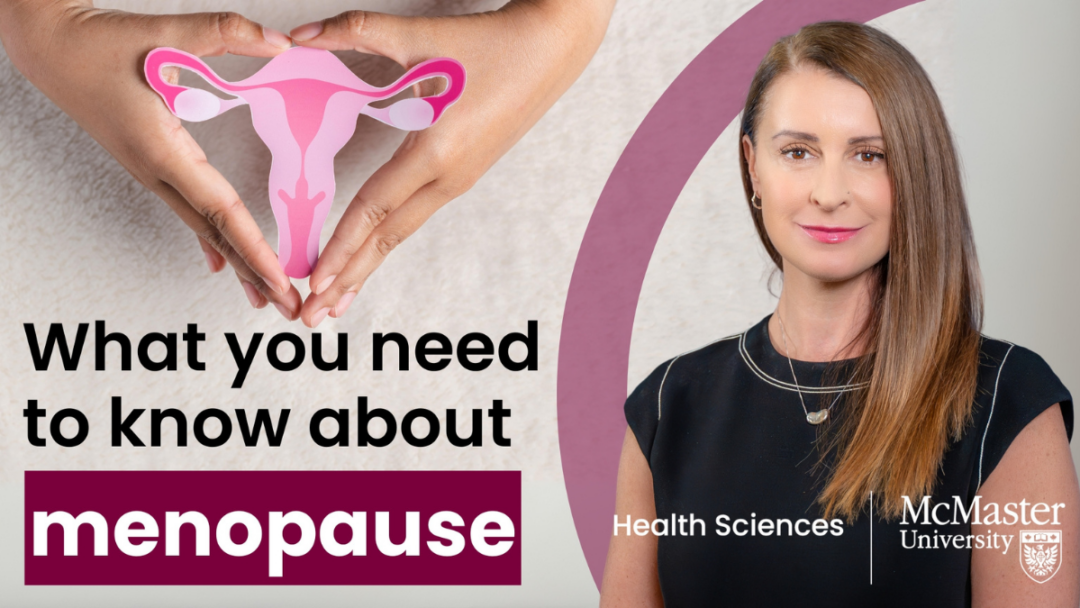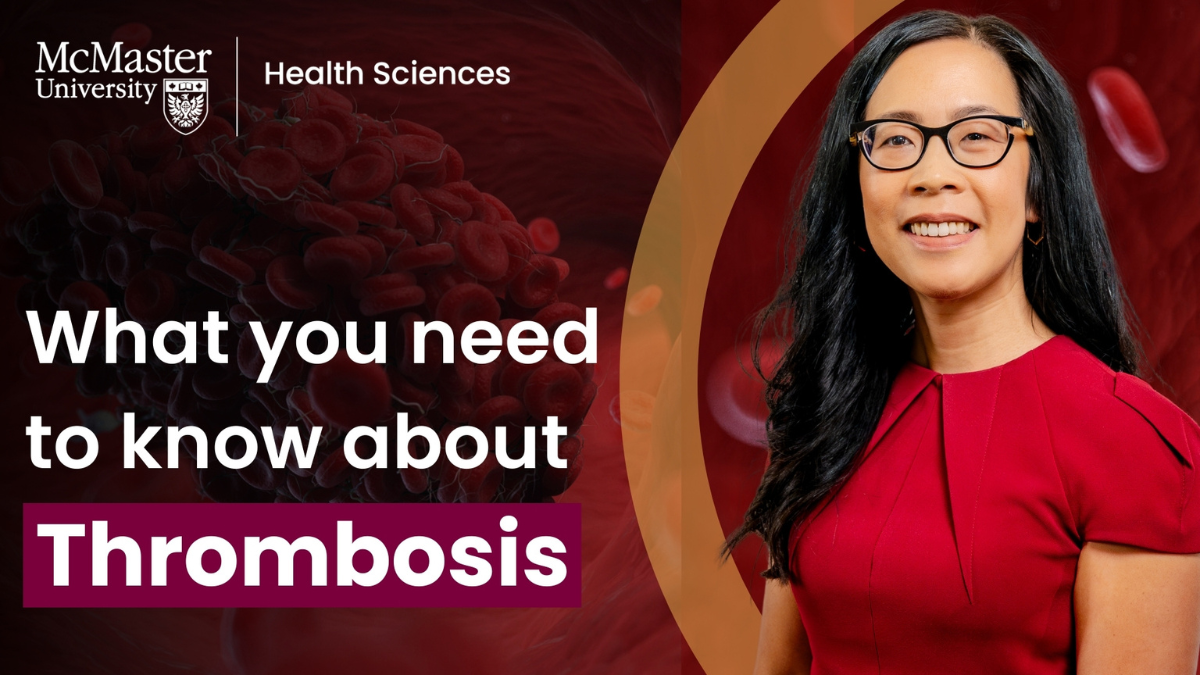Here’s what you need to know about menopause

Did you know the menopause transition and perimenopause can last four to eight years?
Alison Shea, gynecologist, reproductive mental health specialist and associate professor in the Department of Obstetrics & Gynecology at McMaster University, shares what you need to know about menopause.
What is menopause and when does it happen?
Perimenopause is when a person starts noticing a change in their menstrual cycles, typically by seven days, says Shea. For example, if your period typically occurs at 28 days you may start experiencing a cycle after 21 days or 35 days, she adds.
“There may be some cycles that seem back to normal and then they become shorter or longer again,” says Shea, adding, “this is when symptoms start to occur.”
While the average age for menopause in Canada is 51, the normal range spans from 45-55 years old.
“Menopause starts officially one year after the final menstrual period—after that, a person will be in menopause for the rest of their life and considered postmenopausal,” Shea explains.
Symptoms of menopause
Symptoms differ depending on a person’s level of estrogen, and can include:
- Changes in sleep patterns
- Heavy menstrual bleeding
- Tenderness of the breasts
- Hot flashes
- Night sweats
- Headaches
- Changes in mood
- Vaginal dryness
- Muscle and joint aches
- Changes in attention and cognition, often described as “brain fog”
Psychological and emotional well-being during menopause
“The perimenopause and early menopause transition are a particularly vulnerable time for mood changes,” says Shea.
She explains that about half of those experiencing menopause will note symptoms of depression.
“Many describe an increase in anxiety and feelings of irritability or rage are very common,” says Shea.
When should a person seek help?
Shea advises that a person should seek help if they feel like the symptoms are affecting their quality of life, relationships or ability to function at home or at work.
“We have many great treatment options that are safe and approved by Health Canada to treat these symptoms,” says Shea. “You don’t have to suffer in silence.”
What can people expect in postmenopause?
“Studies show that women in their 60s rate their quality of life higher than they did around the menopause transition,” says Shea.
Most people experience a cessation of hot flashes, night sweats and mental health symptoms, she explains.
However, Shea says that some people continue experiencing issues with disrupted sleep and genitourinary syndrome which can include vaginal dryness, itchiness, pain with intercourse and urinary symptoms.
“It’s important if you’re having any of these symptoms, to get treatment,” says Shea.
The Menopause Foundation of Canada has a toolkit available on their website that goes through all the symptoms and provides a rating sheet, which Shea suggests can be printed off and brought to a family doctor or health-care provider to give people the tools and words to ask for the help they need.
Dept. ObGyn, Knowledge TranslationRelated News
News Listing

Here’s what this renowned diabetes researcher wishes you knew about the disease
Dept. Medicine, Feature, Knowledge Translation
November 13, 2024

Fly on the Wall: Improving maternal health outcomes in Canada
Dept. ObGyn, Education, Fly on the wall
May 14, 2024

